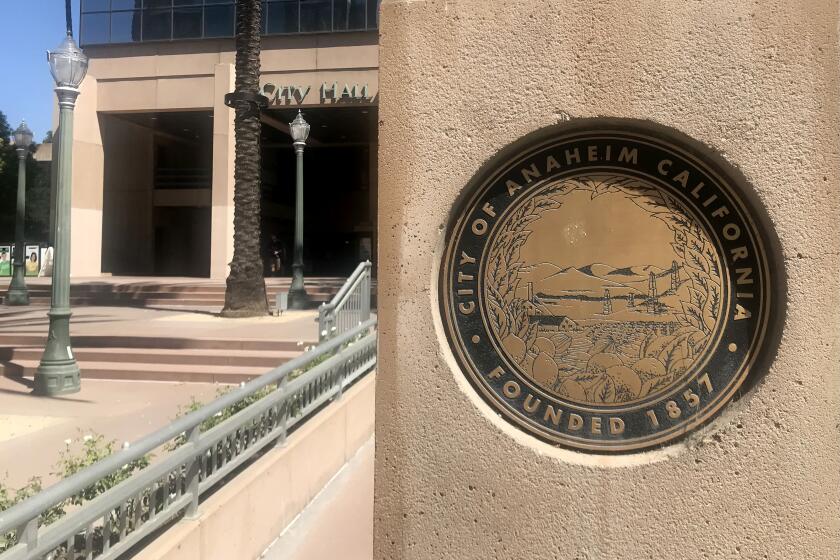‘Archangel’ helicopter commander stands watch over California
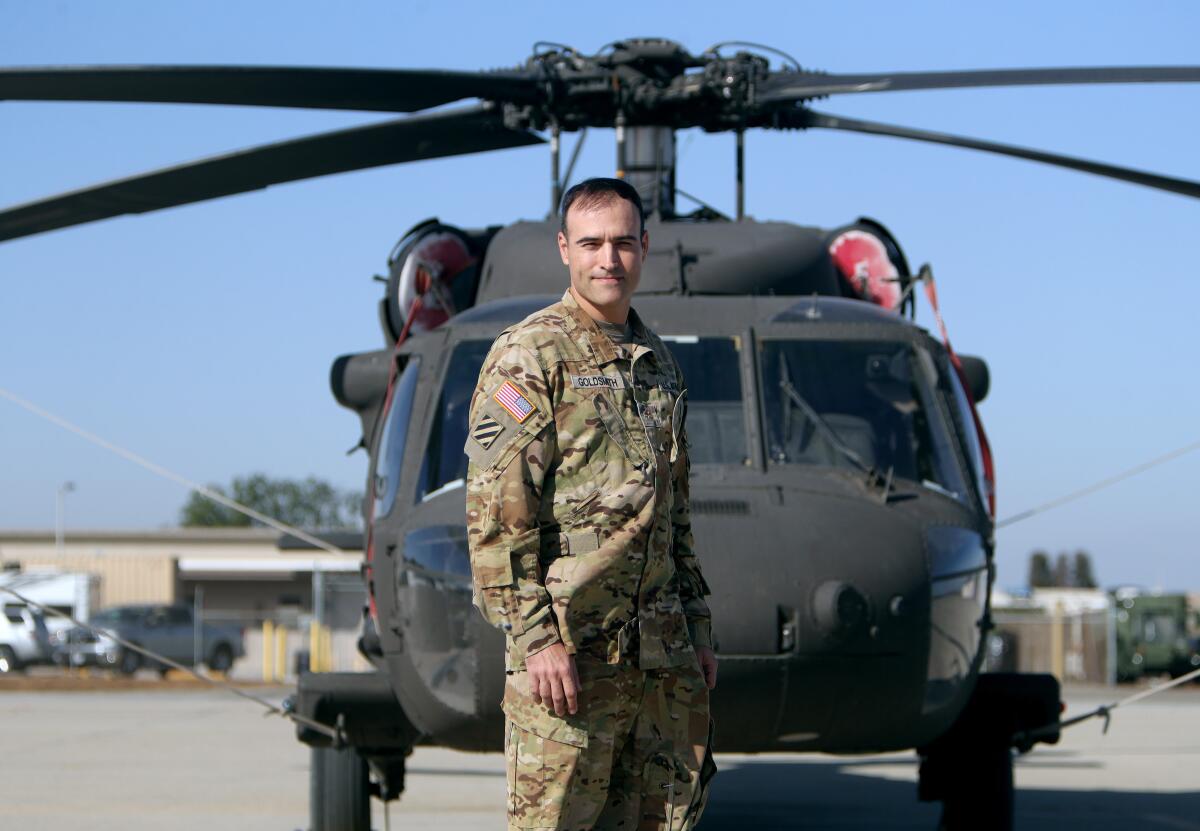
Soaring over the desolate Anza-Borrego Desert State Park at 150 mph, Maj. Daniel Goldsmith tracked the flight plan of his UH-60M Black Hawk helicopter.
An hour earlier, the aircraft flew past multimillion-dollar oceanfront mansions in Laguna Beach.
Goldsmith, who majored in geography, sees California’s diverse landscape from the unique perspective of a military helicopter cockpit. There’s a feeling of freedom when flying above Southern California’s vast urban sprawl, he said.
“It feels nice to fly away from that and get away from that,” Goldsmith said. “If you’re driving a car, that would take you all day.”
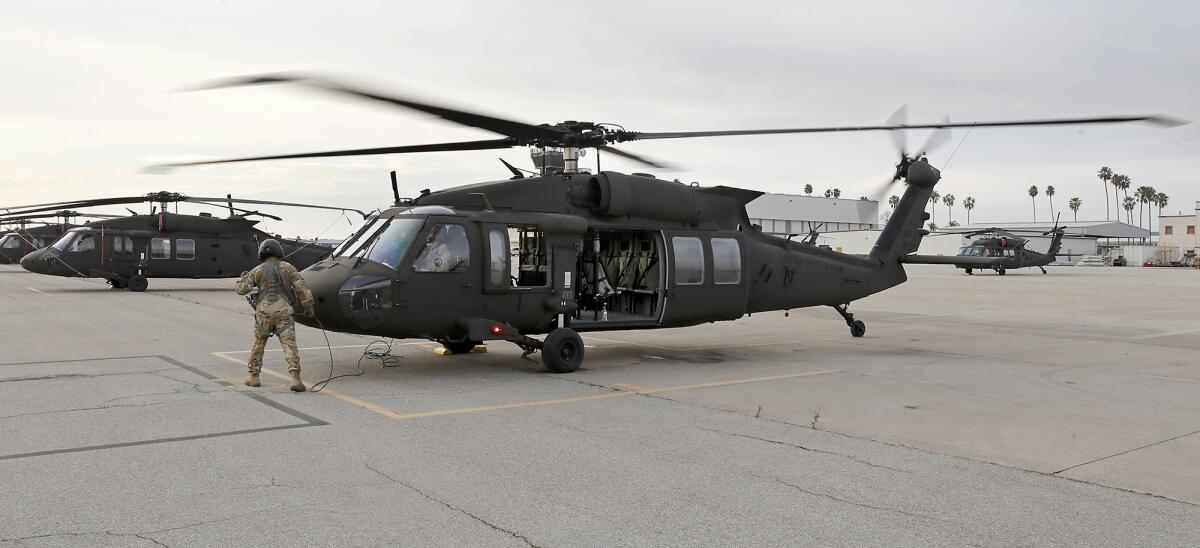
In October, Maj. Daniel Goldsmith assumed command of the 1st Assault Helicopter Battalion, 140th Aviation Regiment at Joint Forces Training Base Los Alamitos.
“I feel very lucky, and I try to remind everyone here how lucky we are because of what we get to do,” Goldsmith said.
The California Army National Guard Black Hawk battalion’s flight crews have increasingly been activated by two governors to respond to natural disasters.
In 2017, four crews of the Archangel battalion dropped water on the Thomas Fire in Santa Barbara and Ventura counties. Two flight crews from the Archangels were dispatched to Sacramento International Airport to help Cal Fire extinguish the Kincade Fire.
As commanding officer of the Archangel Battalion, Goldsmith is responsible for the readiness of 376 mostly part-time soldiers and a fleet of 20 helicopters that fulfill war-fighting missions abroad and natural disaster response at home.
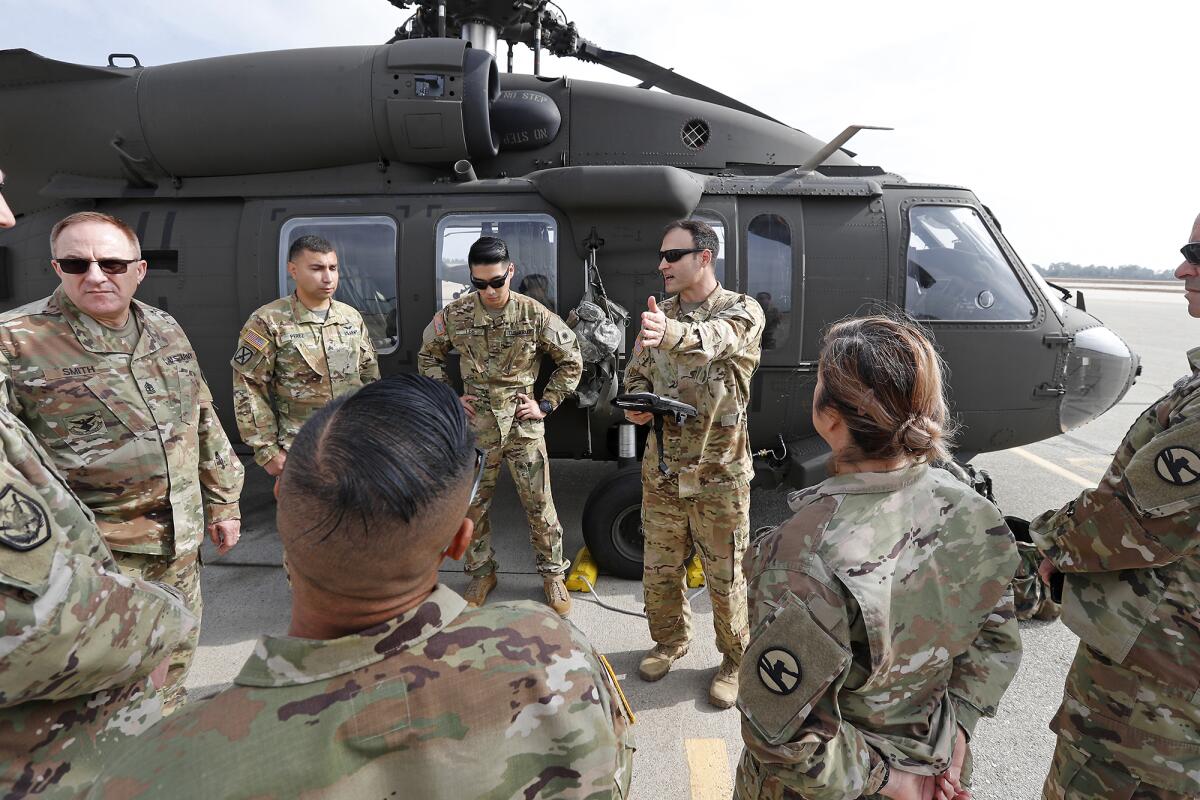
People close to Goldsmith say he exemplifies the quiet warrior ethos the U.S. military tries to instill in the Officer Corps. He’s focused on every tax dollar spent to keep his flight crews airborne and also cares deeply about his soldiers’ well-being.
Although his father served in the Army Reserve, Goldsmith didn’t always intend to enlist. He graduated from Agoura Hills High School and went on to attend UC Santa Barbara. He joined the Reserve Officer Training Corps after deciding the college party culture wasn’t for him.
“It didn’t feel like people were doing anything meaningful with their lives,” Goldsmith said.
Goldsmith expected to join the Infantry, but a recruiter suggested he become an army aviator after seeing his grades.
“Looking back on it, it was probably a good move,” Goldsmith said. “I might not be alive now or might not have my parts and pieces.”
Goldsmith reported for flight school at Alabama’s Fort Rucker in June 2003, two weeks after graduating from college. He went onto pilot AH-64 Apache attack helicopters, one of America’s most lethal aircrafts because of its tank-destroying weapons.
People often ask Goldsmith whether he prefers driving Apaches or Black Hawks. The jobs are as different as a police officer and taxi driver, he said. Black Hawk pilots’ main mission is delivering up to 11 troops into combat zones.
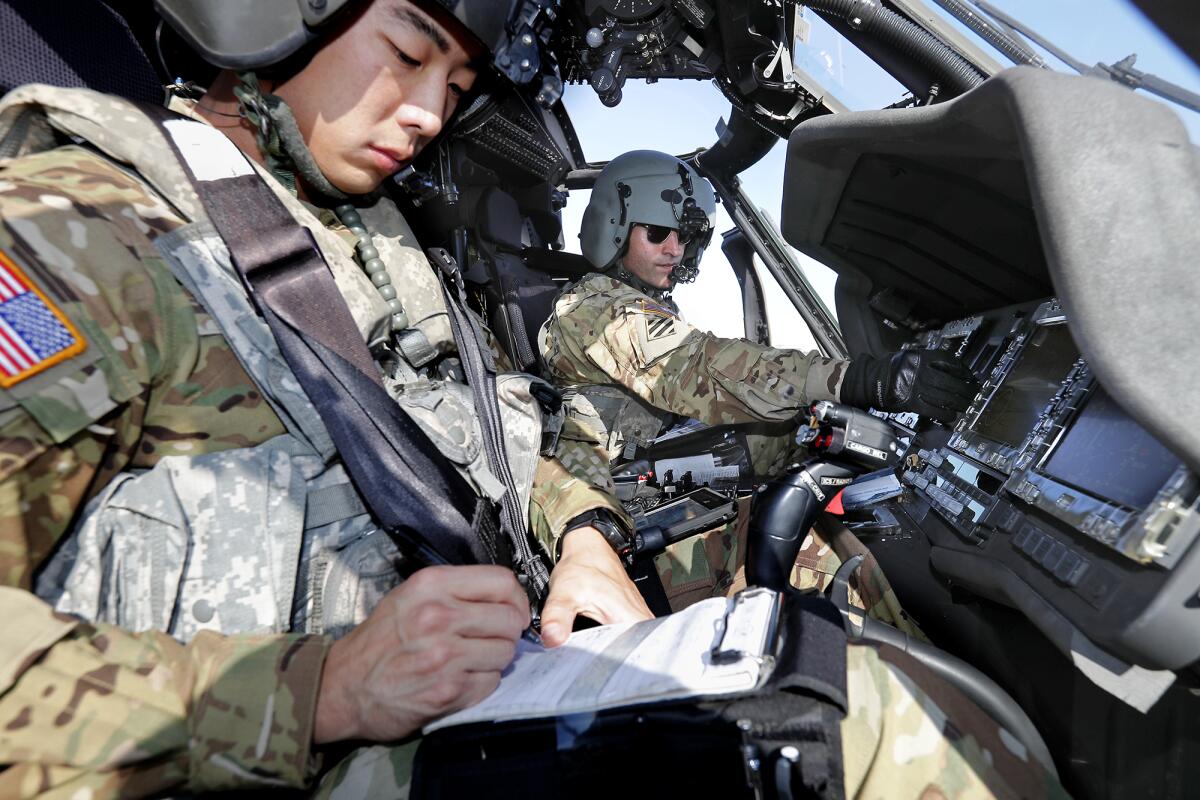
In 2005, Goldsmith deployed to Iraq for the first time at 24 years old.
“To defend my country and our way of life … after being given all of that training and resources, it felt very fulfilling,” he said.
During the Iraq War troop surge of 2007, Goldsmith piloted Apaches supporting ground troops fighting insurgents.
“We were shooting a lot then,” Goldsmith said.
By his fourth deployment, war had taken a real toll on Goldsmith, who has been overseas for four years of his 13-year-old daughter’s life.
“My commitment level is no lower, and I don’t think the commitment level of my soldiers is any lower than it was, but I appreciate the toll it takes on people’s personal lives,” he said.
Making sure his crew and a dozen infantrymen get home safely is stressful, Goldsmith said. That’s why it’s particularly important that National Guard aviators, who fly less frequently than active-duty soldiers, take every opportunity to ferry passengers.
“Most of the time we’re flying around empty, and I think it’s good for people to feel comfortable flying around with people in the back,” he said.
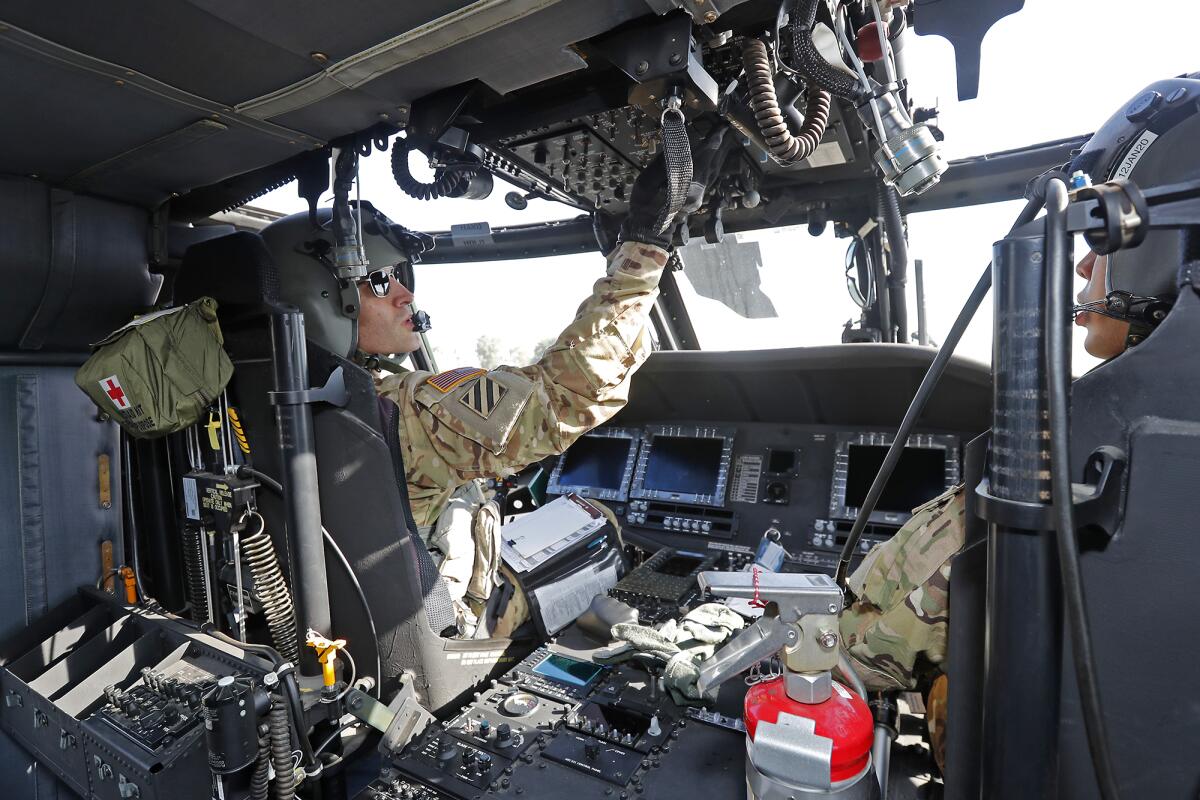
After seven years of active duty service, Goldsmith transitioned to the California Army National Guard and started piloting Black Hawks.
Maj. Matt Jackson, a company commander with the 1-140th, has deployed overseas twice with his boss and former co-pilot.
Jackson wrote in a statement that Goldsmith “continues to serve his state and nation selflessly. It’s an honor and privilege to have served and flown with Dan for 10 years both here at home and deployed overseas.”
Shirley Feldmann-Jensen, coordinator for the Emergency Services Administration program at CSU Long Beach, said Goldsmith raised the academic bar for all students in her class through his presence.
“He did everything with excellence but in a humble way that didn’t bring attention to himself,” Feldman-Jensen said.
All the latest on Orange County from Orange County.
Get our free TimesOC newsletter.
You may occasionally receive promotional content from the Daily Pilot.


